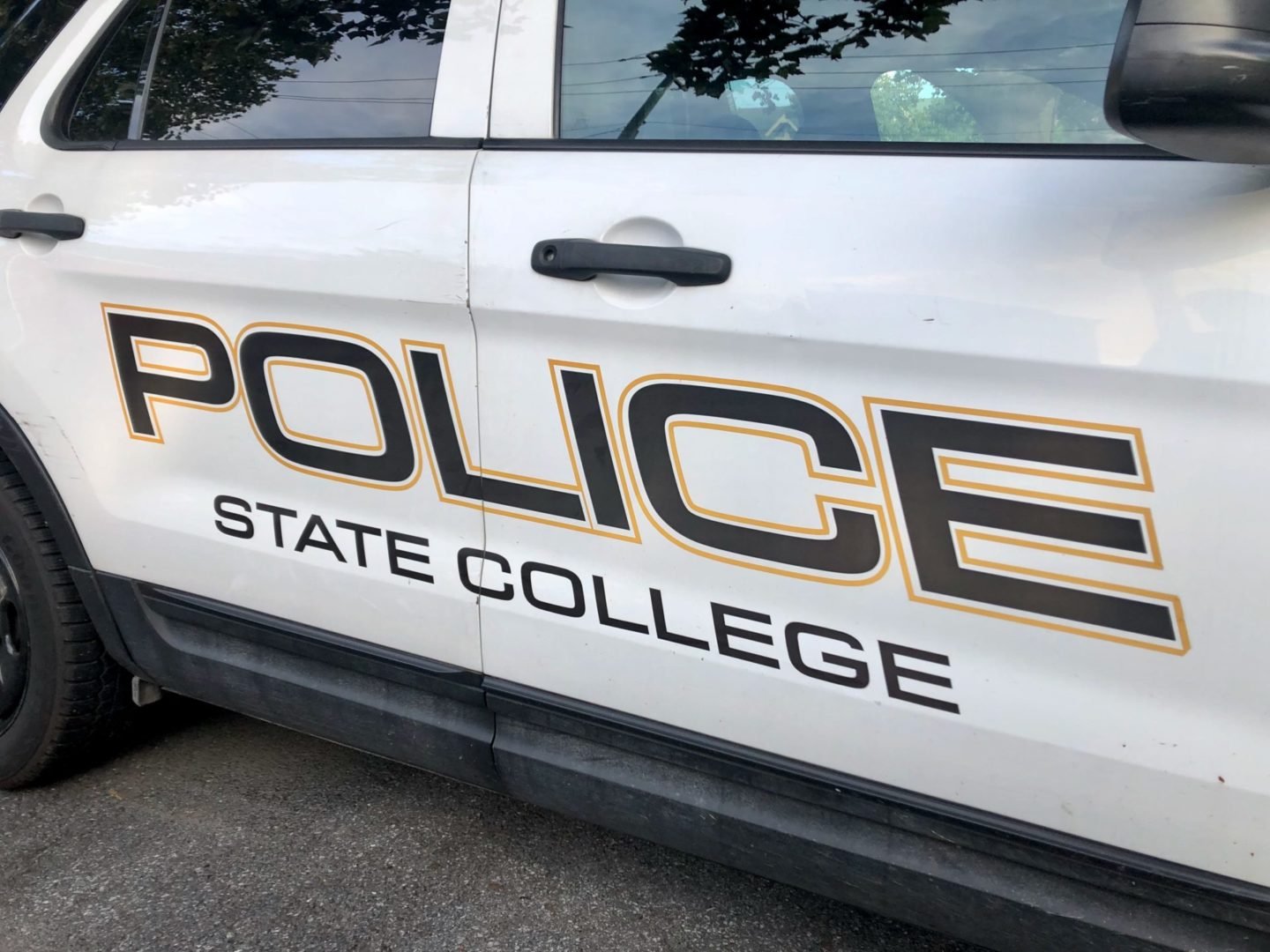
Photo by Geoff Rushton | StateCollege.com

Photo by Geoff Rushton | StateCollege.com
With assistance from Centre County Government, the State College Police Department is hoping to receive state grant funding to create a social work program.
County commissioners on Tuesday approved a collaborative grant application to the Pennsylvania Commission on Crime and Delinquency for Crisis Intervention and Pre-trial Diversion Program funding of up to $150,000 over the next two years.
Centre County will serve as the applicant agency to meet grant stipulations and the State College Police Department would be the recipient.
The grant would help establish the State College Police Department Social Work Program to provide preventative services and case management for individuals interacting with law enforcement and dealing with issues related to mental health, homelessness, substance abuse and family management challenges, Hannah Babiss, local government fellow for State College Borough, said.
“There would be an emphasis on supporting underrepresented and historically oppressed community members to reduce the rate at which individuals enter or re-enter the justice system,” Babiss said.
The grant would specifically fund a lead social worker’s salary and health benefits for 2022 and 2023.
The intersection of law enforcement and mental health issues has been a focus for years within the county, particularly since the fatal police shooting of State College resident Osaze Osagie in 2019.
Babiss noted that integrating resources “to better respond to and follow up on cases involving aspects of mental health is a countywide goal.” The State College Police Department serves about 56,000 residents in the borough and College and Harris townships, or about a third of the county’s population, so the program could have a far-reaching impact.
Through the Centre County Crisis Intervention Team, local law enforcement is already in the process of developing a co-responder model, Babiss added.
“I think this social work program through the State College Police Department really significantly complements this larger goal of enhancing mental health services,” she said.
Police calls related to mental health continue to rise and State College Police Chief John Gardner said officers alone cannot address those individuals’ needs.
“We believe our police officers not just in State College but countywide do an exceptional job, but they need help,” he said.
“And a lot of times the help that is needed is we continually go back to the same client base, so this will give us an opportunity to address that through a civilian employee who may be more relatable to a person in crisis.”
Commissioner Michael Pipe said that for decades the county has been putting together the pieces of “a human services and criminal justice services spectrum,” and that the State College program would be another key component.
“We keep putting these really helpful pieces in — DUI court, drug court — and there’s growing pains that exist in each of those,” Pipe said. “But at the end of the day we’ve seen with the data and evidence-based approach to it that there’s really better outcomes. This is a very exciting opportunity to do something that’s funded through PCCD and I would think this is going to rise to the top of the list.”
Because of the cascading financial and emotional costs of incarceration, and the large segment of the Centre County served by State College police, Commissioner Mark Higgins said he hopes to see the program implemented quickly.
“It is incredibly expensive to put people even in the county correctional facility, not just financially but from a social standpoint, emotional standpoint,” Higgins said. “All of these individuals are part of families and that ends up impactign so many other county departments, children and youth, aging, etcetera…. We’ve kind of been waiting for an opportunity of this type.”
Commissioner Steve Dershem said the program could be a good chance to “break that cycle” of recidivism and to get help to people who might not otherwise find it.
“Mental health, substance abuse and homelessness really don’t know any demographic,” Dershem said. “It spans the spectrum and I think this is a good opportunity for us to reach out to maybe some folks that maybe aren’t going to find opportunities for help and provide them. The folks on the frontlines, this is another tool in their belt to get help to people.”
Receive all the latest news and events right to your inbox.

80% of consumers turn to directories with reviews to find a local business.